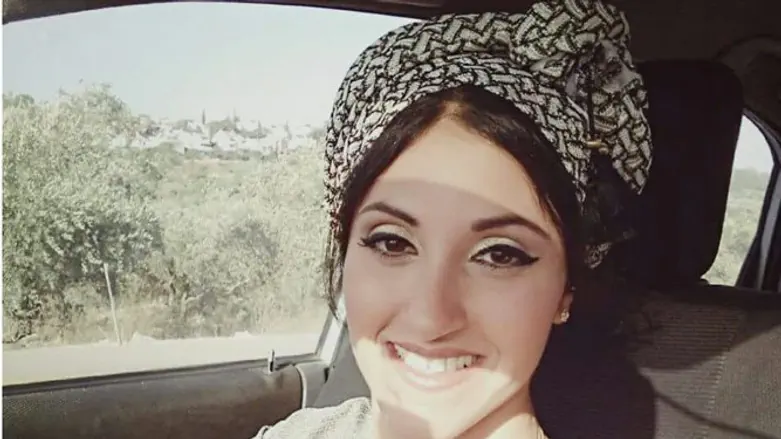
The mother of one of the roughly two dozen Jewish youngsters who were attacked by an Arab lynch mob in Samaria Thursday slammed the army over its slow response to the near tragedy.
Twenty-five 13-year-olds on a class trip celebrating the Bar Mitzvah of the youngest student were ambushed by dozens of Arabs hurling stones down at them from a ridge overlooking the entrance to a cave in eastern Samaria.
The children were escorted by two armed guards – both of them school staff members. The organizers had coordinated the hike with army officials and received a green-light to take the group.
Yet when the guards reported that the class was under attack by stone-throwers, it took the IDF a full hour and a half to dispatch troops to the scene.
In the meantime, the hikers came under a barrage of stones and were forced to hide in a nearby cave.
While one of the two guards left to direct soldiers to the cave, the other guard was injured as the Arab lynch mob surrounded the entrance to the cave and began throwing stones in at the terrified hikers.
One terrorist managed to steal the guard’s firearm, then used it to threaten the hikers and demand they hand over their cell phones and backpacks.
In a Facebook post Thursday, Keren Perelman described how a casual nature walk near the Israel town of Migdalim in Samaria turned into a struggle for survival for her son, Yitzhar, and two dozen other Israeli youngsters when an Arab lynch mob threatened to slaughter them, chased them into a cave, and stole one of the guard’s firearms.
“Early this morning, I took my son to a hike in honor of the Bar Mitzvah of the youngest boy in his class, the principal’s son,” wrote Perelman.
“The hike was around Migdalim, and had been approved by the army and [planned] in coordination with them.”
Later that morning, however, Perelman received a disturbing message on the Whatsapp instant messenger program that left her panicked.
“Later I got a Whatsapp message and added 1 + 1 together and I almost fainted.”
Perelman then shared some examples of the status updates she had received from local emergency services which had left her praying for her son to return home.
“Report of some 20 youths and an armed adult near Migdalim and the village of Kusra, who are being surrounded by a number of Palestinians. [Security] forces are en route.”
A few minutes later, Perelman received an update.
“Dozens of Arabs are attacking a group of students who were on a hike. One of the armed escorts opened fire, wounding one of the rioters.”
Perelman could hardly believe her eyes, as she followed status updates in real-time about her son’s ordeal.
“I don’t need to explain how I felt and how much I was freaking out. I couldn’t get ahold of anyone, and no one else knew what was going on. I drove there as fast as I could. I knew that until I saw him alive, I wouldn’t be able to believe [that he’s okay].”
“Finally, I managed to get to Yitzhar, and he described the whole traumatic experience he went through.”
That ordeal, Perelman noted, was a full 90 minutes from the time the group reported the attack, until soldiers finally arrived to rescue the children.
“An hour and a half until the army arrived! An hour and a half of utter terror! An hour and a half hiding in a crumbling cave while hundreds of Arabs [wait] outside!”
“Yitzhar told me about all of the promises the kids made [to God if they survived], and about how they were crying, and the feeling of death – the feeling that ‘I’m going to die’.”
“The Arabs sprayed them with pepper spray! They threatened them with a pistol! They demanded that they hand over their cell phones!”
By the end of the incident just before noon Thursday, both of the guards had been injured, along with one of the children. Two of the terrorists who had attacked the hikers were shot, one of them fatally.
